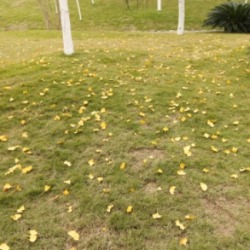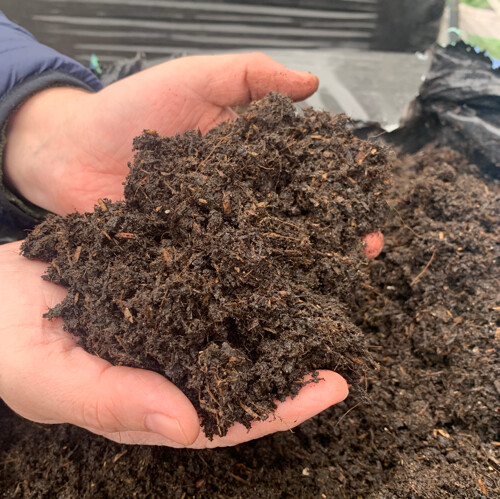Top Dressing Your Lawn
Three Steps to a Better Lawn
 If your lawn is looking a little tired after a poor summer or a wet winter, give it a health kick with an application of top dressing. Our lawns have a hard time over the summer months, with heavy traffic, dry spells, wet spells and lots of cutting. All this activity takes nutrients out of our soils so at the end of the summer it is time to put a little back so that your lawn is alive and kicking next spring.
If your lawn is looking a little tired after a poor summer or a wet winter, give it a health kick with an application of top dressing. Our lawns have a hard time over the summer months, with heavy traffic, dry spells, wet spells and lots of cutting. All this activity takes nutrients out of our soils so at the end of the summer it is time to put a little back so that your lawn is alive and kicking next spring.
Step One: Scarifying
Mow your lawn quite short before scarifying, this will allow the scarifier to remove the moss and thatch more effectively. We suggest you use a scarifier with solid steel cutting blades rather than one with wire tines.
 You can hire good quality scarifiers from most reputable hire shops, or borrow a friends!
You can hire good quality scarifiers from most reputable hire shops, or borrow a friends!
After scarifying, mow your lawn again to remove any up rooted stems and roots. You can compost all the up lifted moss and thatch with your garden prunings in a compost bin or bay.
Step Two: Applying Top Dressing
Apply a generous layer of organic top dressing over the lawn at a depth of about 1cm, you can use a rake or brush to help work it into the cuts made by the scarifier.
If you have hollows and dips in your lawn, now is a good time to level them out by simply applying further layers of topdressing to the hollows over a period of time allowing the grass time grow through after each application.
Organic compost makes a fantastic top dressing as it will hold moisture around the roots of the grass, it releases its vital plant nutrients slowly and it will help to break up heavy clay soils, there is no need to add grit or sand to organic compost when using it as a top dressing!
You can buy quality organic lawn top dressing here at the compost shop in quantities from 25 ltrs to 1 cubic metre!
Step 3 : Over Sowing
Many lawns will benefit from a scattering of grass seed after top dressing, this will thicken the grass for next year creating a dense healthy green lawn that all your neighbours will envy!
 If your lawn is looking a little tired after a poor summer or a wet winter, give it a health kick with an application of top dressing. Our lawns have a hard time over the summer months, with heavy traffic, dry spells, wet spells and lots of cutting. All this activity takes nutrients out of our soils so at the end of the summer it is time to put a little back so that your lawn is alive and kicking next spring.
If your lawn is looking a little tired after a poor summer or a wet winter, give it a health kick with an application of top dressing. Our lawns have a hard time over the summer months, with heavy traffic, dry spells, wet spells and lots of cutting. All this activity takes nutrients out of our soils so at the end of the summer it is time to put a little back so that your lawn is alive and kicking next spring.